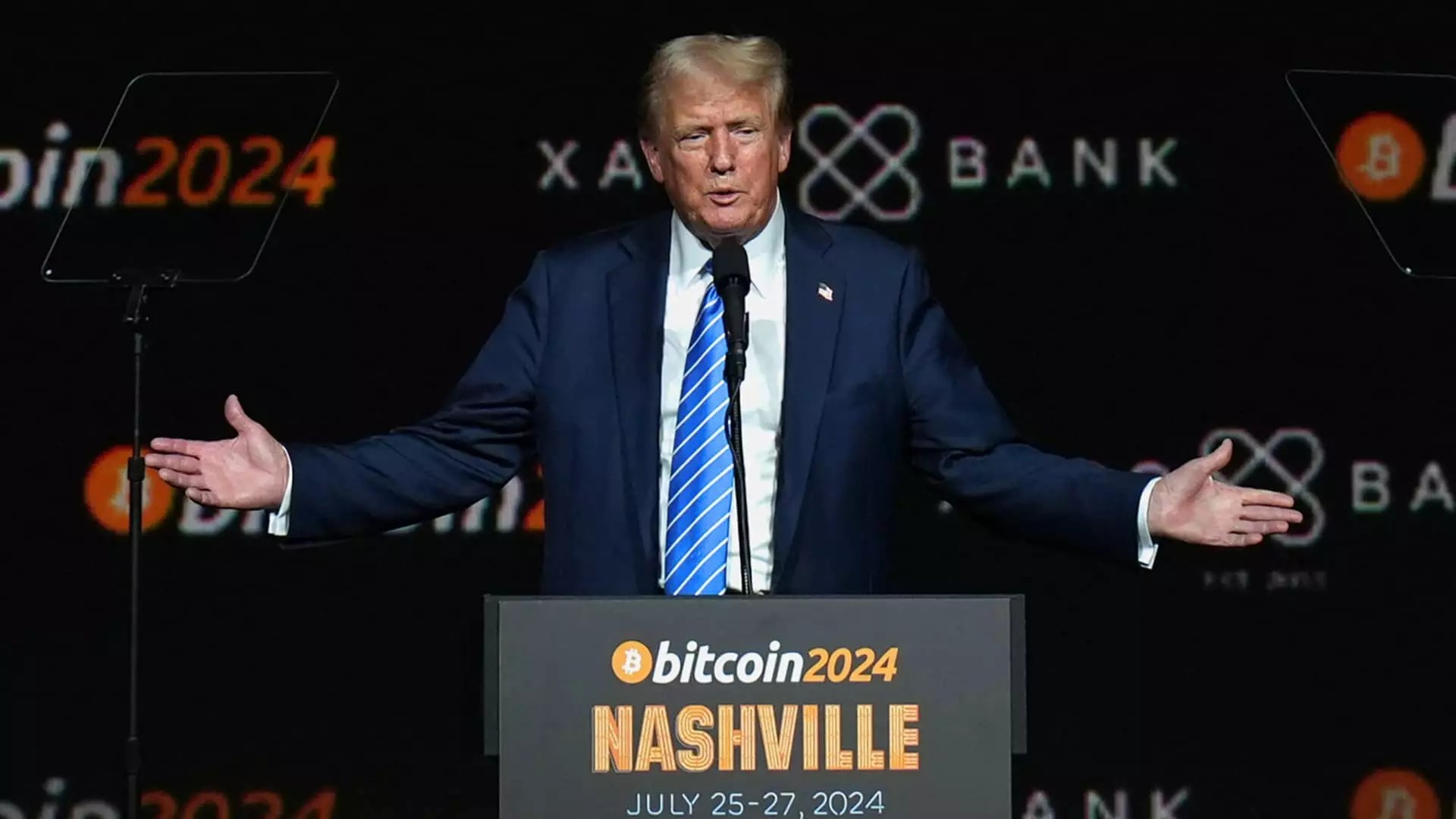In an era when cryptocurrency projects are proliferating at a staggering pace, the recent launch by Donald Trump’s crypto initiative, World Liberty Financial (WLF), stands out not just for its political connotations but for the financial implications it carries. With the unveiling of a detailed 13-page document dubbed the “World Liberty Gold Paper,” WLF’s ambitions and structure have sparked scrutiny, debate, and interest across various sectors, particularly given Trump’s significant public profile as a Republican presidential candidate.
World Liberty Financial positions itself as a crypto bank, leveraging decentralized finance (DeFi) principles to facilitate borrowing, lending, and investment in digital assets. WLF’s aim of raising $300 million in its initial token sale, coupled with its projected valuation of $1.5 billion, indicates a grand operational design intended to capture a significant share of the burgeoning cryptocurrency market. However, the actual sales figures paint a less optimistic picture, with a mere $12.9 million reportedly raised by the time of the document release.
The document outlines how tokens are to be allocated, with a staggering 75% of net protocol revenues earmarked for Trump and his family. This aspect perhaps elicits skepticism and poses essential questions about financial ethics in politically aligned projects. With WLF assigning a notable amount of its revenues to a company affiliated with Trump, DT Marks DEFI LLC, such financial interlacing raises alarms about transparency and potential conflicts of interest.
A notable and curious aspect of the “World Liberty Gold Paper” is its insistence on dissociating itself from political ties, stating that neither Trump nor his family holds direct managerial roles within the organization. Yet, given Trump’s high-profile role in U.S. politics and the intertwined nature of his endeavors with his political identity, this assertion seems disingenuous. This detachment raises important questions regarding the motivations behind launching such a project amidst a heated electoral race.
The ongoing political climate undoubtedly impacts investment decisions in cryptocurrency projects like WLF, making it crucial to examine the broader market implications. The project’s claim of being politically neutral begs scrutiny at a time when many citizens are wary of how political affiliations can influence financial initiatives, especially in unregulated environments like crypto.
From a financial perspective, WLF’s tokenomics—specifically, the allocation of tokens—merit close examination. Indicating that only 20% of the tokens are assigned to the founding members, including the Trump family, begs questions about stakeholder incentives. The allocation strategy reveals a complex relationship between community interests and the founders’ financial gains. High risks lurk in these arrangements, particularly if early investors feel that disproportionate rewards are being funneled to the founding elites rather than the wider community of participants.
Interestingly, the document reveals that a significant 30% of the revenues are designated for reserves, suggesting a cautionary approach to covering operational expenses. This could signal a learning curve from previous cryptocurrency ventures that have stumbled due to liquidity issues. The inclusion of external entities like the Axiom Management Group—which diverges from the founders—adds layers of complexity that could either enhance operational viability or introduce unpredictability.
With the crypto landscape continually evolving, investor sentiment surrounding projects like World Liberty Financial merits attention. The combination of Trump’s name and reputation, the unique tokenomics, and self-imposed political detachment does provide an array of elements that could either attract or repel prospective investors.
The critical question remains: Will investors see WLF as a valid opportunity worth backing, or will the underlying complexity and political entanglements deter participation?
Ultimately, as cryptocurrency continues to intersect with traditional sectors like politics and finance, the launch of World Liberty Financial offers an illuminating case study on the challenges and risks of blending these domains. Investors should approach such projects with a keen sense of scrutiny, considering both the financial frameworks in play and the broader implications of political involvement in emerging technologies like cryptocurrency. The coming months will reveal whether WLF can navigate these turbulent waters or become another footnote in the vast history of digital currency ventures.


Leave a Reply